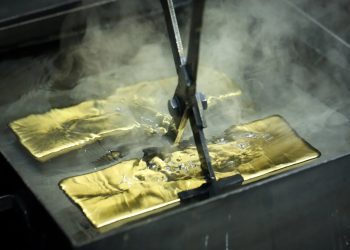
Osino Resources has awarded a N$416 million (€20 million) contract to global process technology supplier Metso for the supply of key equipment to its flagship Twin Hills gold project in central Namibia.
The Twin Hills mine, located about 150 kilometres northwest of Windhoek, is Osino’s most advanced development and is expected to play a major role in the country’s growing gold mining sector.
The contract covers a comprehensive equipment package for the greenfield gold plant, including advanced crushing and concentration technology.
“As a leading supplier of process technology globally, Metso is pleased to be selected as a trusted partner for Osino Resources’ flagship Twin Hills gold project in Namibia,” said Charles Ntsele, Vice President of Minerals Sales for Africa at Metso.
“Our energy-efficient and water-conscious technology will support Osino Resources in reaching their targets. This project also highlights Metso’s commitment to continued support and development of the Namibian mining industry.”
Ntsele confirmed that the plant’s crushing circuit will feature a Superior MKIII primary gyratory crusher, apron feeders, and Nordberg cone crushers to enhance ore processing efficiency.
For concentrate thickening and tailings dewatering, Metso will supply two HRT High Rate Thickeners with Reactorwell feed technology and five Larox FFP3512 filters. These components are part of Metso’s Plus portfolio, known for high performance and dewatering capacity.
Metso, a Finnish-based company, is a global leader in sustainable technology and integrated solutions for the aggregates, minerals processing, and metals refining sectors.
It employs around 17,000 people across approximately 50 countries and recorded sales of €4.9 billion in 2024. The group is led by CEO Sami Takaluoma.
The Twin Hills project is underpinned by a 2023 definitive feasibility study, which outlines a 13-year open-pit mining operation with proven and probable reserves of 2.94 million ounces. It is expected to yield an average of 160,000 ounces of gold annually at an all-in sustaining cost of around US$1,000 per ounce.







